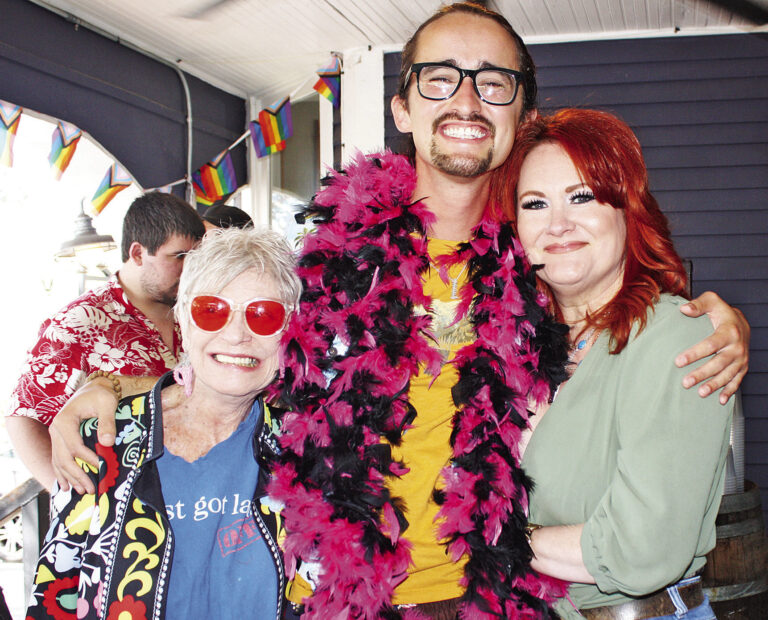The Carroll County Solid Waste District won’t move forward with instituting mandatory garbage collection for county residents who live outside city limits, Berryville Mayor Tim McKinney said at a regular meeting of the district’s board of directors on Tuesday, Dec. 10.
McKinney serves as a chair of the district board, which also includes Carroll County Judge David Writer, Eureka Springs Mayor Butch Berry, Green Forest Mayor Don McNeely and Holiday Island Mayor Dan Kees.
The meeting included a lengthy discussion of growing concerns over proposed changes to trash collection services in the county. That discussion included public comments from local independent haulers and residents, highlighting a divide in opinions over the potential implementation of mandatory trash service and other waste management proposals.
McKinney emphasized that the board’s primary goal is to find the most efficient way to provide affordable trash collection to all county residents while balancing the district’s financial sustainability.
“Let me tell you what we’re trying to do here,” McKinney said to an audience that filled every seat in the small meeting room. “We’re not forcing anything on anybody. But the cost of trash service is getting high, really high, and we’re very well aware of that. We’ve looked at our rates in the rural areas and raised them a lot to try to cover our costs. But like one gentleman said, $20 or $30 a month is not a lot for a lot of people but for somebody on Social Security, that’s some of their medicine or that’s something they’re going to have to do without next week. Our purpose of doing this is not to make more money; it was to try to provide reliable service at the cheapest price we could to the most people in the county. That’s it.
“Carroll County Solid Waste operates as a nonprofit,” McKinney continued. “We don’t make money. We’re here to do one thing, to take care of the solid waste in Carroll County. That’s our goal. That’s our mission. And that’s what the state has us do. If the people of the county don’t want this, then I don’t think this board’s job is to impose it upon you, although we have the authority to do it.”
One idea under discussion involved granting exclusive service zones to small haulers, allowing them to operate within designated areas to reduce operational costs.
However, independent hauler Nathaniel Mann, owner of Osage Trash, expressed concerns about losing his autonomy.
“Basically, it’d be making me a subcontractor so I would be an employee through Carroll County Solid Waste,” Mann said. “But I’d still have to maintain my own truck. I’d have to have my own insurance.”
McKinney countered by explaining that the proposed system could benefit haulers by centralizing billing and reducing the need for haulers to service dispersed customers. However, Mann and others remained skeptical, arguing that the plan might inadvertently harm small businesses and impose unnecessary restrictions.
Public Pushback
A significant portion of the public comment period focused on rumors that mandatory trash service would be imposed.
County resident Randall “Mike” Mann voiced strong opposition.
“The way it appears is there’s a possibility that people could have a trash service forced upon them and they do not want that,” he said. “Anybody I’ve talked to, they’re tired of paying money. That’s why they live in the county is so that they don’t have to deal with stuff like this. If they wanted a trash service, they’d figure one out.”
Several attendees echoed this sentiment, highlighting concerns that mandatory service would disproportionately burden low-income residents, including older people on fixed incomes.
McKinney clarified that mandatory service was no longer being pursued.
“I don’t think we’re going to do mandatory service,” he said. “I don’t think we’re going to change anything.”
Economic and Logistical Challenges
The board acknowledged the financial challenges facing the district. Rising labor and fuel costs, coupled with increased wear and tear on trucks servicing rural areas, have strained the district’s budget. McKinney noted that cities within the county have subsidized rural collection for years but can no longer afford to do so.
“We’re not here to make money,” McKinney said. “We’re not here to make your life miserable. We’re here to try to provide reasonable solid waste service to everybody in the county. But I can tell you this: The cities are not going to subsidize the county, rural collection anymore. We have for years, and that’s why we’ve been losing money for three years. We’ve lost money for three years. We’re going to have to adjust our rates, the actual cost of serving those customers.”
McKinney said a rate increase won’t be popular.
“My fear is many people will discontinue service and we’ll start having more and more litter and more and more dump sites. But I’m not going to force anything on anybody. I don’t have a dog in this fight, other than trying to keep our county clean and provide service for everybody. It would be my recommendation to the board that we just end this thing right here and adjust our rates and move forward accordingly to make our business work.”

